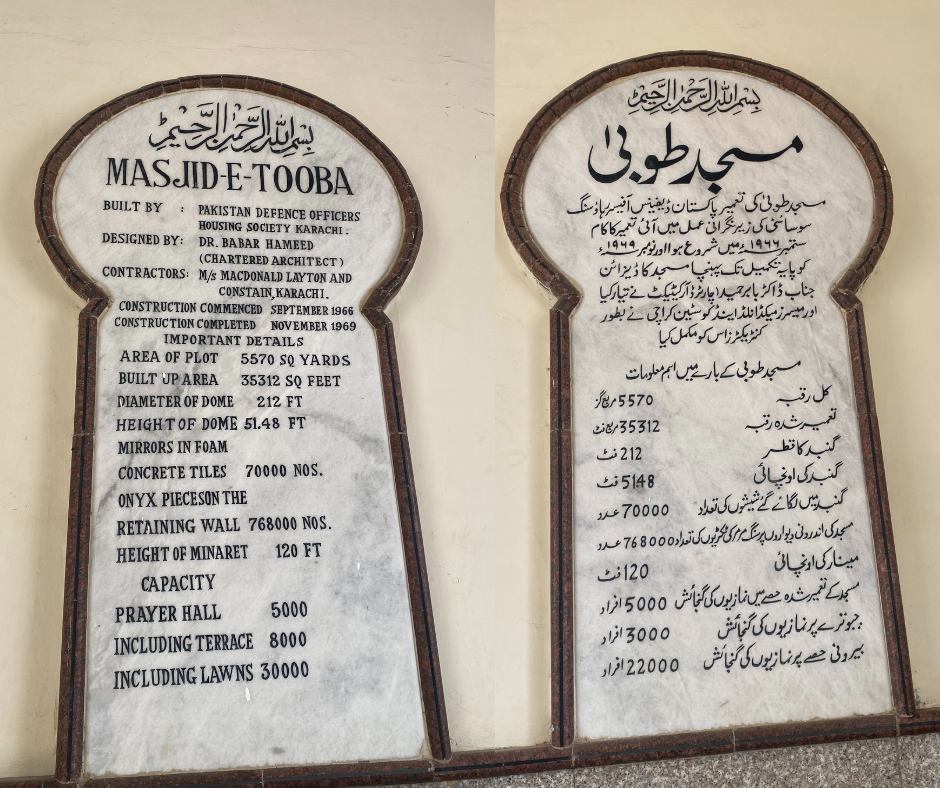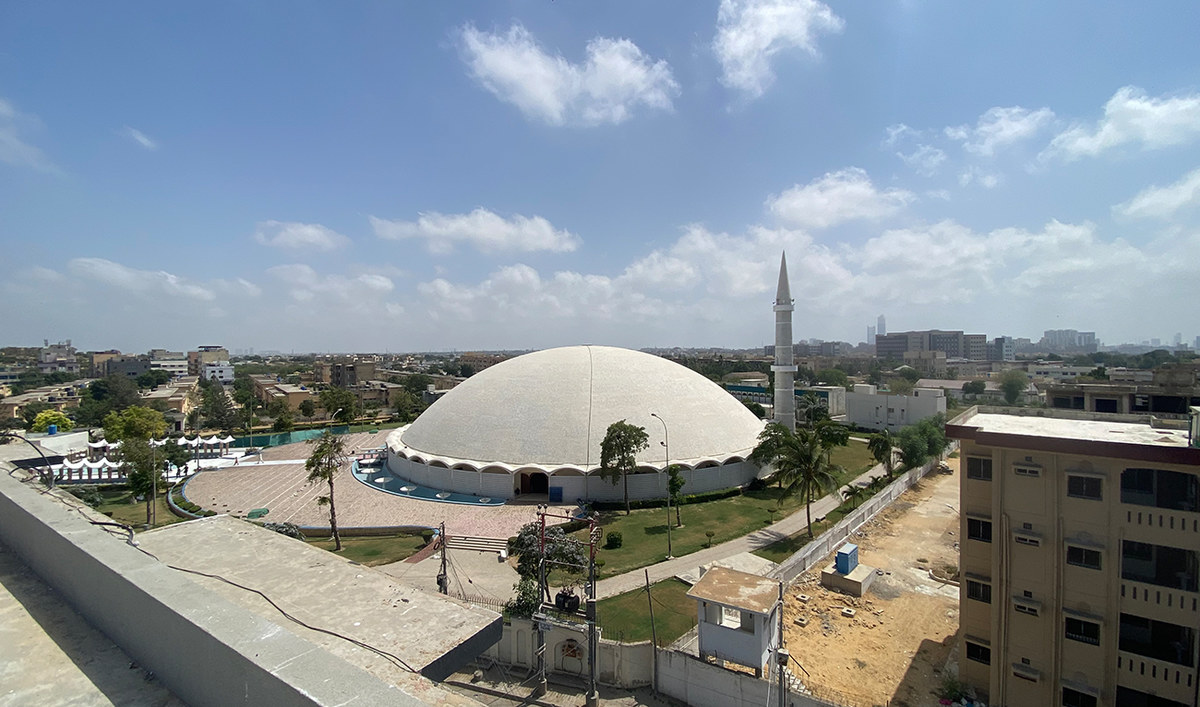KARACHI: One look at the marble dome of the imposing Tooba Mosque, and you’ll know why they call it the “Gol Masjid” or the Round Mosque. The massive dome, visible from miles away above a lush, green garden, stands tall over fifty years after it was constructed. That, too, without the support of any pillars.
Designed by Pakistani architect Dr. Babar Hameed, construction work on the Tooba Mosque in the country’s southern port city of Karachi began in 1966 and was completed within three years.
The mosque was constructed by the Defense Housing Authority, a Pakistan Army-administered real-estate developer that governs housing and municipal services for Defense area neighborhoods across the country.
Considered one of the most famous mosques of Pakistan’s largest city, Tooba Mosque’s unique dome is 212 feet wide and stands 51.48 feet tall. The main hall located under the dome can accommodate an estimated 5,000 worshippers
“This mosque is a masterpiece from an architectural point of view,” Mufti Ghufranul Haque, a prayer leader at the mosque, told Arab News. “It is such a huge mosque, you can see its construction, you can see its dome, but there are no pillars here,” he added.
“From this point of view, you can say it is among one of the wonders of the world.”

An information board detailing history of the single-dome mosque, Masjid-e-Tooba, in Pakistan’s Defence Housing Authority (DHA), Karachi on April 16, 2023 (AN Photo)
Haque says that despite being built over 50 years ago, when authorities did not have modern technological methods at their disposal, the mosque continues to stand tall.
“It stands firm with beauty and strength,” he said, gazing upwards at the dome.
Qari Nisar Sohail, who looks after the administrative affairs of the mosque and is also a muezzin or mosque official responsible for issuing the call to prayer, said the beauty of the mosque lies in its large dome.
He said the mosque’s ceiling contains thousands of pieces of glass while its walls are constructed from small pieces of marble.
“You might have seen the tiny pieces of glass in the ceiling,” Sohail told Arab News. “When you turn on a light inside [the mosque], it reflects and bounces off the glass pieces and provides additional light.
“So, you can light up this entire hall with just a few lights.”
Local elder Raja Mazhar Hussain, who witnessed the mosque while it was being constructed five decades ago, recalls how people from all over the world would frequently visit it.
“When it was built, people from all over the world would come here to see it [the mosque],” Hussain told Arab News.

A view of the Tooba Mosque, built with one of the largest domes standing without pillars in Karachi on April 16, 2023 (AN Photo)
“At that time, the [security] conditions were not unfavorable. So, when the steel mill was established here, the French who came here for shipping [purposes] and the Russians also visited this place as visitors,” he added.
Once a “popular religious tourist destination,” Sohail says the number of tourists who visited Tooba Mosque gradually declined as the years went by.
“In 2002, the number of foreign visitors decreased due to international situations, but people continue to visit the mosque nonetheless,” he said, adding that non-Muslim women who come to the mosque are provided gowns to ensure the sanctity of the place is maintained.
Muhammad Younus, 69, also saw the mosque being constructed with his own eyes as a child. He says that besides Pakistani heads of state and senior government officials, United Arab Emirate’s founder Sheikh Zayed bin Sultan Al Nahyan also visited it and offered prayers beneath the magnificent dome several years ago.
“There was no other large mosque in the area, so people who came here from the areas in Arabian region on a tour of Pakistan, would stay in the Defense [area] and offer prayers at this mosque,” he said.

















